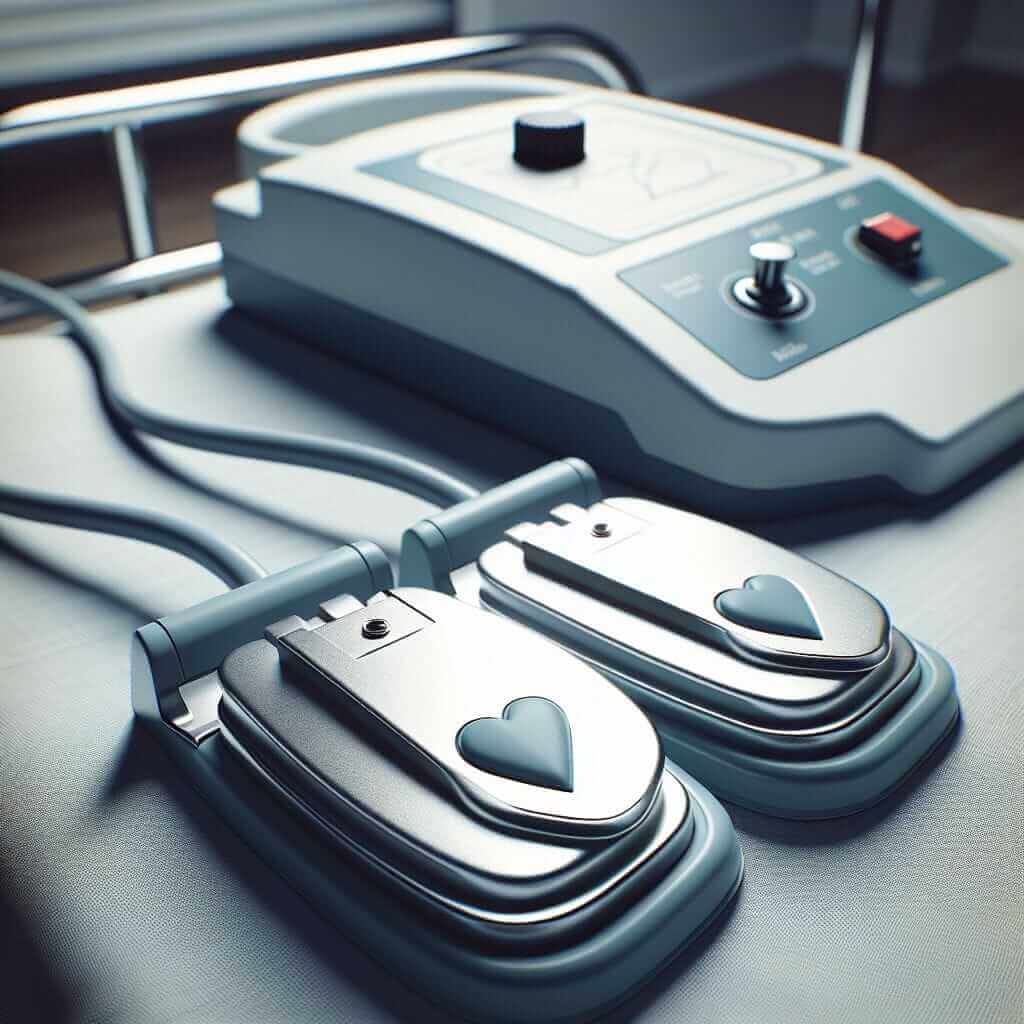The IELTS exam often features topics related to health and medicine. Therefore, building a strong vocabulary in this area is crucial for achieving a high score. This article focuses on the word “defibrillator,” a term you might encounter in the Listening, Reading, or even Speaking sections of the IELTS. We’ll explore its meaning, synonyms, and how to use it effectively in your exam.
Understanding “Defibrillator”
Definition
Defibrillator (noun) /ˌdiːˈfɪbrɪleɪtər/: A medical device that delivers an electric shock to the heart to restore a normal rhythm.
Synonyms:
- AED (Automated External Defibrillator)
- Heart Shocker (informal)
Example: Paramedics used a defibrillator to restart the patient’s heart after he went into cardiac arrest.
“Defibrillator” in the IELTS Exam
The word “defibrillator” and related terms are most likely to appear in the Listening and Reading sections of the IELTS.
Listening Section
You might hear “defibrillator” in a dialogue about first aid, a lecture on heart health, or a news report about an emergency situation.
Example:
- Listening Question: What did the bystander use to help the collapsed man?
- Audio Transcript: “…a bystander quickly retrieved the defibrillator from its case and followed the instructions…”
Reading Section
You might encounter “defibrillator” in a passage about medical technology, public health initiatives, or a personal account of a health crisis.
Example:
- Reading Passage Excerpt: “…the increasing availability of defibrillators in public places has significantly improved survival rates for sudden cardiac arrest…”

Using “Defibrillator” in Your IELTS Responses
While you’re less likely to use “defibrillator” extensively in the Speaking or Writing sections, understanding its meaning can help you demonstrate a wider vocabulary.
Speaking Example:
- Examiner: “Do you think governments should invest more in public healthcare?”
- Candidate: “Absolutely. Investments in things like public awareness campaigns about heart disease and ensuring defibrillators are readily available in public places can save lives.”
Writing Example:
- Writing Task 2: Discuss the importance of first aid training.
- Possible Response: “Moreover, first aid courses that teach CPR and the use of a defibrillator equip individuals with the skills to respond effectively in emergencies…”
Collocations with “Defibrillator”
- Use a defibrillator
- Attach a defibrillator
- A portable defibrillator
- A defibrillator implant
- Defibrillator training
Idioms and Related Phrases
While there are no common idioms using “defibrillator,” you can use figurative language to emphasize its life-saving function:
- “The paramedics arrived just in time and used a defibrillator to give him a second chance at life.”
- “The availability of a defibrillator can mean the difference between life and death in an emergency.”
Conclusion
Adding “defibrillator” and related medical terms to your vocabulary will not only improve your understanding of health-related IELTS content but also allow you to express yourself more accurately and effectively during the exam. Make sure to practice using this vocabulary in context to ensure you can confidently utilize it on test day.